How to Prepare Students with Disabilities for College: A Timeline of Tips
September 17, 2015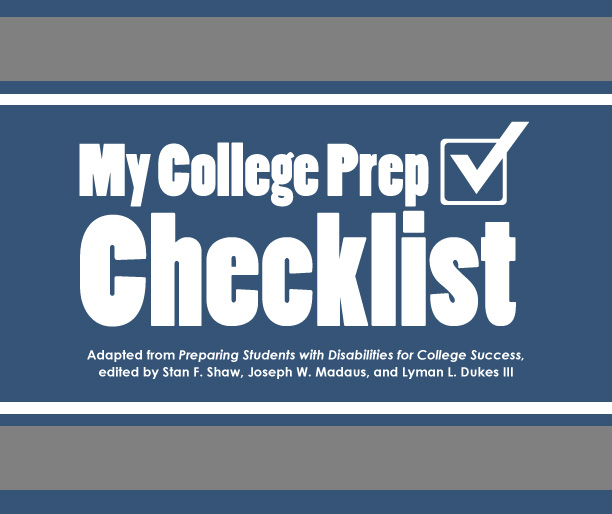
More and more students with disabilities are heading off to college every year. We couldn’t be happier that student opportunities are expanding—and that more higher learning institutions are providing the supports all young adults need to succeed.
Whether or not a student has special needs, college prep comes with a boatload of questions: How do we get started with prep work, and what should we do when? What skills should students focus on to get ready for college? When do we start researching colleges? Applying for entrance exam accommodations? Getting ready for the Dreaded College Application Essay?
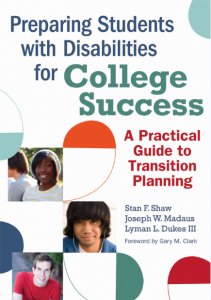 If you’re a parent, teacher, or self-advocate and college is a goal for you or a student in your life, this post is for you. I’ve got a timeline of tips from Preparing Students with Disabilities for College Success, an excellent book that outlines key things to do before and during high school to ensure a smooth transition to college. I’ll share the tips in this post, and then give you a printable checklist you can use to help your planning process hum right along.
If you’re a parent, teacher, or self-advocate and college is a goal for you or a student in your life, this post is for you. I’ve got a timeline of tips from Preparing Students with Disabilities for College Success, an excellent book that outlines key things to do before and during high school to ensure a smooth transition to college. I’ll share the tips in this post, and then give you a printable checklist you can use to help your planning process hum right along.
Let’s start with…
BEFORE HIGH SCHOOL
Nope, it’s not too early to start planning for college! Before students get to high school, they should partner with teachers, families, and transition support staff to:
- Enroll in a diverse, well-balanced portfolio of challenging courses, including classes in English, math, science, technology, history, geography, foreign language, and fine arts.
- Review the course offerings in high school, their level of difficulty, and the sequence in which they’re offered. Pinpoint which classes will prepare them best for their college of choice.
- Expand the IEP transition plan to outline a high school plan of study, with specific classes identified
- Work to address any basic skills deficits in reading, math, writing, and oral language.
- Become proficient with smartphones, computers, and open learning environments like the Internet.
- Develop a full toolbox of study skills and learning strategies they’ll use in high school and beyond. (Below is a helpful graphic that outlines key study skills to master.)
FRESHMAN YEAR
During freshman year, self-advocacy should be a goal on the student’s transition plan. To actively participate in the planning process, students can:
- Increase their knowledge of their own disability and how it may affect their academic performance.
- Practice explaining their own strengths and challenges to others.
- Work with the transition team and a college guidance counselor to register for their courses and ensure they have the credits needed for their high school diploma.
- Prepare for and pass all end-of-course exams. (If a student receives a course substitution and/or waiver in high school, make sure there’s a clearly documented rationale that relates directly to the student’s disability.)
- Start a transition portfolio of disability documentation, letters of support, verification of test accommodations used on statewide assessments, copies of past IEPs, and school records. (These will be helpful when requesting accommodations in college.)
- Begin identifying adaptations and modifications they’re likely to use in college to support their learning.
- Be sure that at least one annual goal on the IEP addresses postsecondary or other vocational transition activities.
SOPHOMORE YEAR
Students should spend this year reinforcing and expanding the college prep work they started freshman year. They should continue actively participating in IEP planning, taking classes that get them ready for the rigors of college, and sharpening their basic academic skills. Sophomores can also:
- Conduct more research on colleges. Talk to guidance counselors, go to college fairs, and chat with college representatives who visit high schools.
- Review college disability documentation guidelines.
- Work with their parents to make sure that their disability documentation records are current, and request an update if not.
- Find out how to prepare disability documentation for college
- Identify and apply for high-stakes test accommodations.
- Prepare for and take the PSAT to gauge how prepared they are for the SAT.
- Acquire and expand on specific study skills, such as using the library, reading with auxiliary aids and assistive technologies, and writing a term paper.
- Develop fluency with assistive technologies they can use in college.
JUNIOR YEAR
During junior year, students should consolidate their college prep plans, expand their self-advocacy skills, and start to narrow their focus to specific colleges. They can:
- Consider possible career goals and college majors that support those goals.
- Identify a short list of potential colleges that are a good fit for their goals, interests, and abilities (and offer the necessary disability support services).
- Use college catalogs and websites to research information about admissions, prerequisites, tech requirements, housing, campus life, and disability services.
- If the website has a place to submit a question, send queries to admissions and disability services personnel in preparation for the campus visit.
- Plan campus tours, including a visit to the disability services office. Be prepared to talk to postsecondary disability service personnel about access to support services.
- Consider retaking high-stakes entrance exams, if necessary.
- Start working on college application essays (high school English teachers and guidance counselors can usually help students prepare for the essay-writing process).
- Request letters of recommendation from teachers and other individuals—from coaches and counselors to drama directors and employers.
SENIOR YEAR
Almost to the finish line! As they wrap up their high school experience, seniors should:
- Meet with the guidance counselor early in the year to review their transition portfolio and identify materials they’ll need for their college application.
- Talk to their guidance counselor about receiving a Summary of Performance to include in the transition portfolio.
- Continue to develop self-advocacy skills and study skills for college.
- If the target colleges require an admissions interview, practice before the interview by role-playing with the transition coordinator or guidance counselor.
- Go on final campus tours. Bring a list of questions about academics, disability services, and more—admissions procedures, financial aid, housing, social activities, athletics, etc.
- Review how to complete college application forms online.
- Fill out college applications (most colleges require applications to be filed by December of senior year).
- Ask the guidance counselor to review completed applications 2-3 weeks before the deadline.
- Wait for a letter of acceptance—letters will probably begin to arrive in mid-March.
- If multiple acceptance letters arrive, congratulations! Consider second campus visits or follow-up phone calls to ease the final decision.
- Write a short acceptance letter and mail it early along with any deposits and housing requests.
- CELEBRATE an awesome achievement!
Like these tips? Print them out as a checklist, and share it with your students to help them prep for their college adventure.
Our friends at Think College have more than a dozen college success stories up on their website. They’re great reads—stop by and learn more about college success factors, and check out the Think College! book for a good overview of today’s postsecondary options for young people with disabilities.
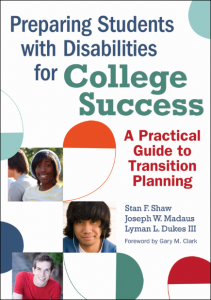
If you’re looking for more in-depth college prep guidance, pick up Preparing Students with Disabilities for College Success—it has lots of strategies and guidance on the college search and admissions process, determining eligibility for services, supporting students’ self-determination skills, and much much more.

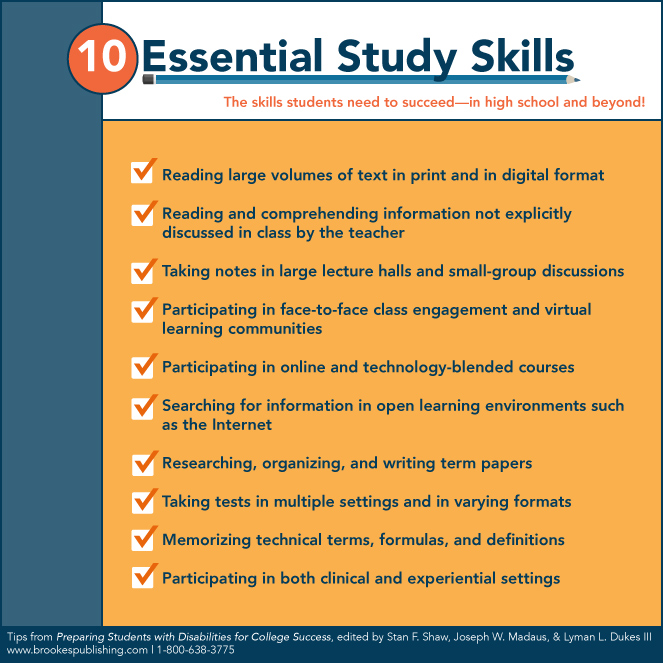
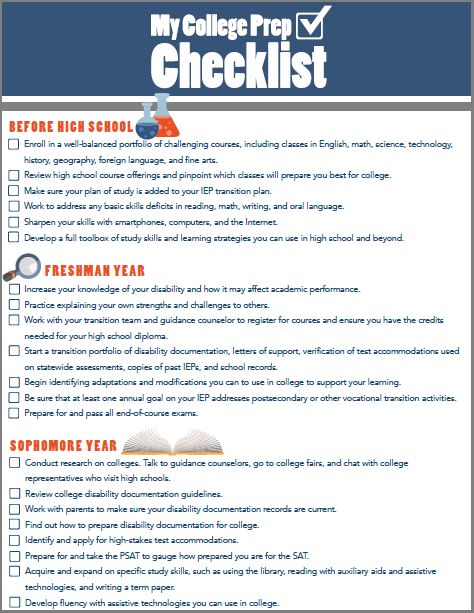

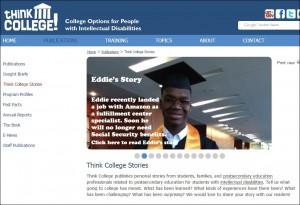
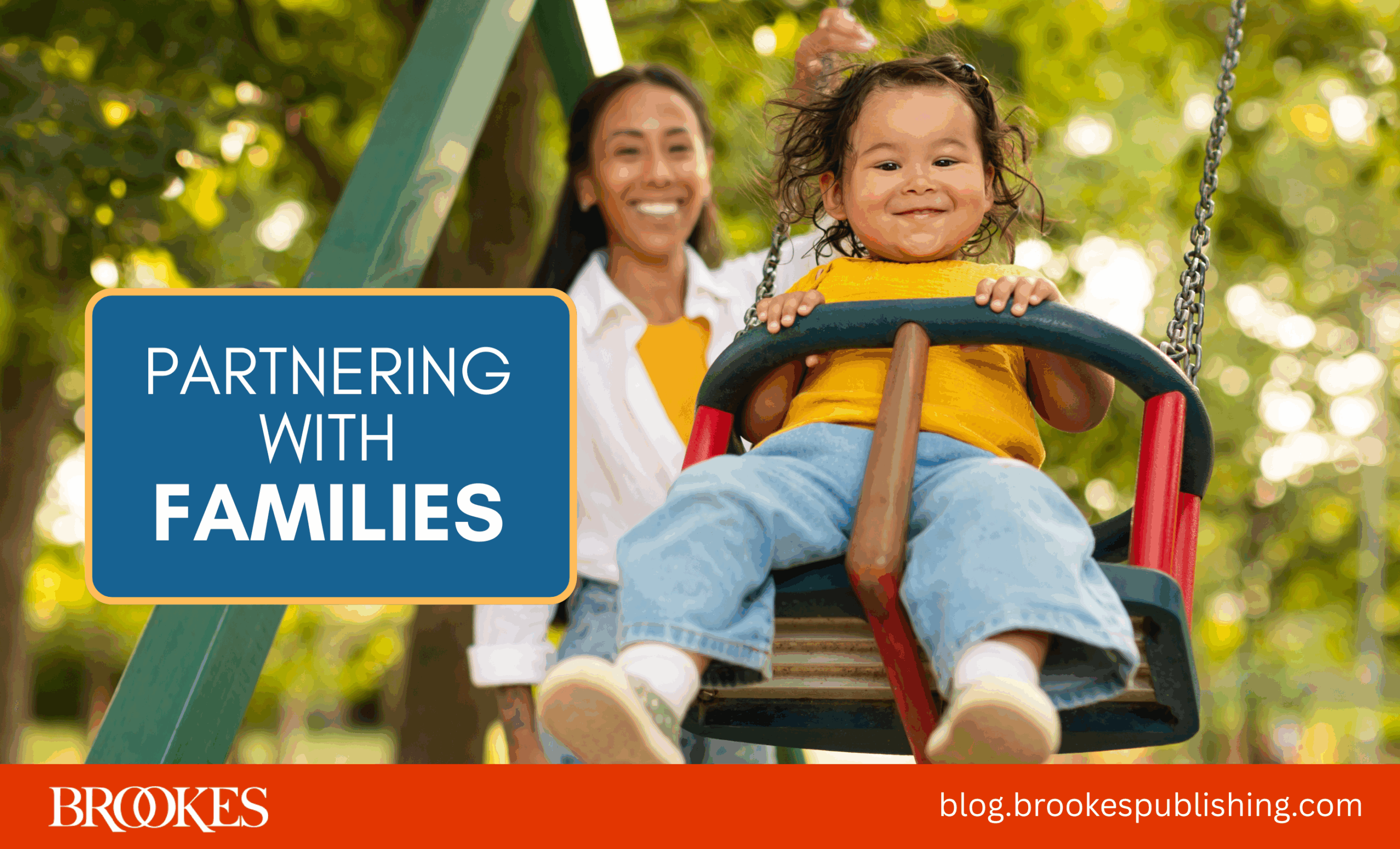


Write a Comment
Your email address will not be published. Required fields are marked *
comments
Casey says
A college fair is a great spot to learn about many different schools, all in one place.
There, you will be able to gather information you are looking for on potential colleges from college representatives who are scouting for students that would fit well at their schools.
jlillis says
Great tip, Casey--thanks for sharing!
Laura says
Thanks for sharing this interesting article!
Post a Comment